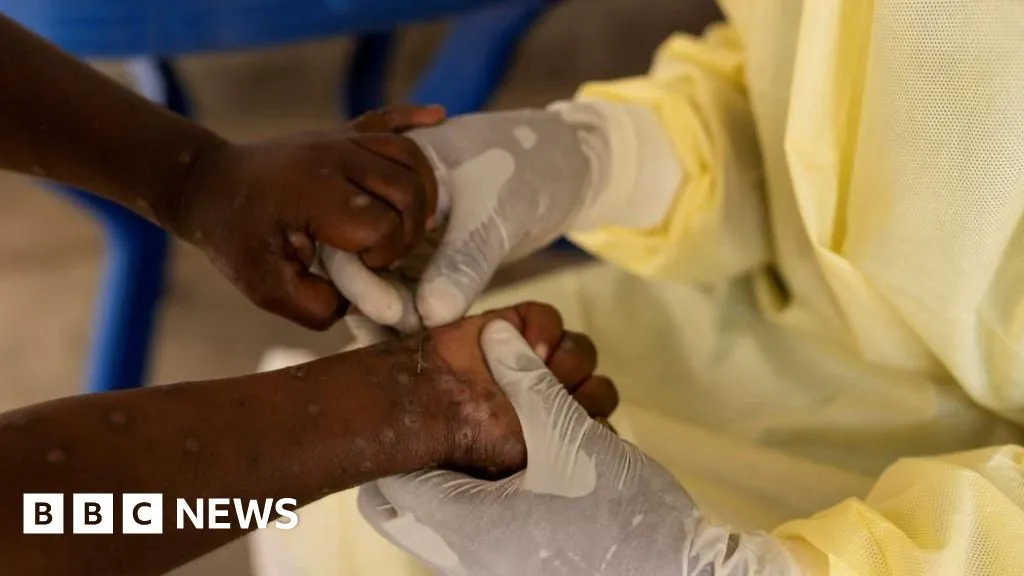Sweden’s public health agency has recorded what it says is the first case of a more dangerous type of mpox outside the African continent.
The person became infected during a stay in an area of Africa where there is currently a major outbreak of mpox Clade 1, the agency said.
The news comes just hours after the World Health Organization (WHO) declared that the outbreak of mpox in parts of Africa was now a public health emergency of international concern.
At least 450 people died during an initial outbreak in the Democratic Republic of Congo and the disease has since spread to areas of Central and East Africa.
According to Olivia Wigzell, the acting head of the Swedish public health agency, the infected person had sought care in the Stockholm area and the fact that they were receiving treatment in Sweden did not mean there was a risk to the broader population.
“The affected person has also been infected during a stay in an area of Africa where there is a large outbreak of mpox Clade 1,” she told a news conference.
Mpox, which was previously known as monkeypox, is transmitted through close contact, such as sex, skin-to-skin contact and talking or breathing close to another person.
The World Health Organization (WHO) has declared the mpox outbreak in parts of Africa a public health emergency of international concern.
The highly contagious disease - formerly known as monkeypox - has killed at least 450 people during an initial outbreak in the Democratic Republic of Congo.
It has now spread across parts of central and east Africa, and scientists are concerned about how fast a new variant of the disease is spreading and its high fatality rate. WHO chief Tedros Adhanom Ghebreyesus said the potential for further spread within Africa and beyond “is very worrying”.
“A co-ordinated international response is essential to stop this outbreak and save lives,” he said.
Mpox is transmitted through close contact, such as sex, skin-to-skin contact and talking or breathing close to another person.
It causes flu-like symptoms, skin lesions and can be fatal, with four in 100 cases leading to death.


